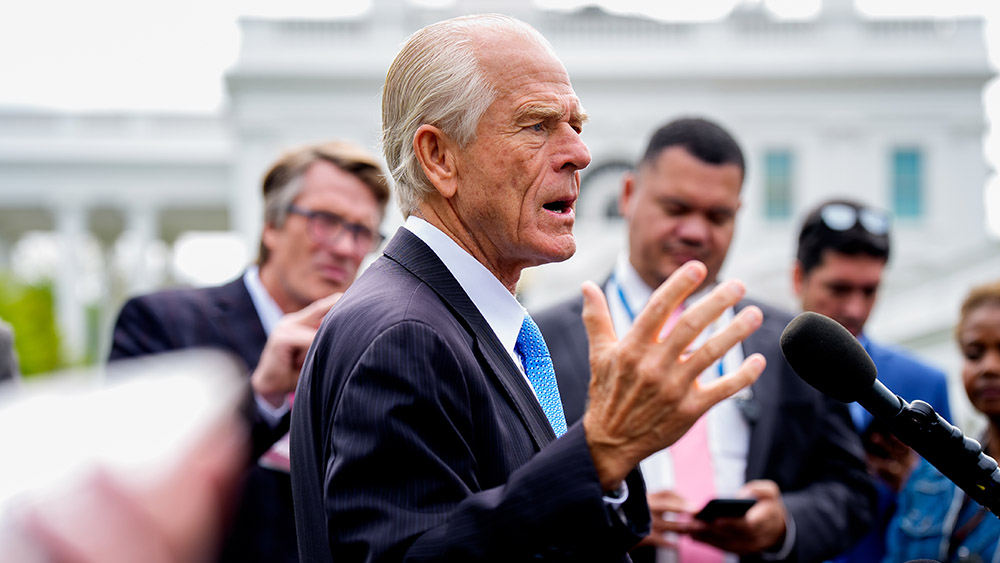Swiss privacy pioneer Proton threatens exodus over “Russian-style” surveillance laws
05/19/2025 / By Willow Tohi

- Proton Technologies, the company behind Proton Mail and Proton VPN, warns it will leave Switzerland if proposed surveillance laws—modeled after Russia’s—force it to retain user data, violating its no-logs policy and encryption standards.
- The Swiss government’s amendments would extend data retention requirements to VPNs, messaging apps and social platforms, eroding user anonymity and Switzerland’s reputation for digital neutrality.
- Proton CEO Andy Yen likens the proposed laws to Russia’s, arguing they would dismantle privacy protections and make Switzerland’s framework illegal by EU/U.S. standards. Other Swiss firms like NymVPN also vow to relocate.
- Political parties, tech companies and civil rights groups oppose the laws, citing risks to Switzerland’s economy and global standing as a privacy haven, with public votes (e.g., in Geneva and Neuchâtel) showing strong support for digital rights.
- The decision pits national security against privacy, with Proton framing it as a choice between upholding Switzerland’s legacy as a privacy leader or aligning with surveillance states—potentially reshaping global digital rights standards.
Switzerland’s reputation as a global leader in digital privacy faces a dramatic test as Proton Technologies, the maker of Proton Mail and Proton VPN, warns it will relocate abroad to avoid complying with proposed surveillance laws. If enacted, the measures—modeled after laws in Russia—would force companies to retain user data and compromise user privacy, violating Proton’s no-logs policy and encryption standards. With 100 million users relying on its services, Proton CEO Andy Yen contends the rules would make the company “less confidential than Google”—and untenable in Switzerland. The looming decision, following May’s public consultation, highlights a clash between national security imperatives and the nation’s legacy of safeguarding privacy, with political opposition and tech firms urging policymakers to retain Switzerland’s competitive edge in the global tech sector.
“We’d have no choice but to leave”—Proton’s dire warning against surveillance expansion
The Swiss government’s proposed amendments to its data surveillance laws, announced in March, aim to expand data retention requirements from traditional telecom providers to “derived service providers,” including VPNs, messaging apps and social platforms. Privacy advocates argue this would erode user anonymity, a cornerstone of Switzerland’s digitally neutral stance. Proton, a leader in encrypted communication, has been outspoken in its opposition.
In an interview with Swiss broadcaster RTS, Yen lambasted the changes as “a major violation of the right to privacy” and “identical to the laws in Russia.” He emphasized that compliance with the proposed rules would require Proton to dismantle its core privacy protections, such as its no-logs policy—a principle that helps secure users in authoritarian regimes. “I think we’d have no choice but to leave Switzerland. The law would become almost identical to the one in force today in Russia. It’s impossible for our business model,” Yen declared.
Proton is not alone in its defiance. NymVPN, another Swiss privacy-focused tech firm, has similarly vowed to relocate rather than undermine its security infrastructure. Alexis Roussel, Nym’s co-founder and COO, cited Switzerland’s reputation as a testing ground for digital rights as reason enough to fight the proposals: “The right to digital integrity is constitutional here. We won’t dilute it.”
A parallel to Russia—How the proposal erodes trust in Swiss neutrality
The Swiss amendments echo laws in countries like Russia, where privacy safeguards are routinely circumvented to surveil citizens. Yen drew a direct comparison, noting that such measures have been ruled illegal in the EU and U.S., countries outlining stricter privacy frameworks. “The only country in Europe with a roughly equivalent law is Russia,” he stated.
Privacy advocates fear this shift risks tarnishing Switzerland’s longstanding appeal as a haven for firms and individuals demanding secure communication. Switzerland has championed digital neutrality since the 1800s, with strict banking secrecy laws evolving into a modern ethos of data protection. However, the proposed laws could push companies to flee, harming the nation’s competitive standing in the global tech economy.
The conflict follows years of friction between privacy-first firms and governments seeking enhanced surveillance powers. In 2023, Geneva became the first Swiss canton to enshrine digital integrity as a constitutional right. Over 90% of voters supported similar measures in Neuchâtel in 2024, underscoring broad public support for safeguards against invasive oversight.
Backlash and a call for “common-sense” compromise
Resistance to the proposed laws has grown steadily since May’s consultation period closed. Political parties, civil rights groups and tech companies are mobilizing to urge a reevaluation. Key to their argument is the economic cost: Switzerland risks losing its status as a magnet for innovative firms like Proton, which employ thousands locally and attract global investment.
“We want rules that protect citizen privacy while allowing companies like Proton to thrive,” Yen said, calling for “common-sense” reforms that balance security with freedom. Ruehl, co-founder of the digital integrity initiative, emphasized that laws must align with constitutional rights rather than mirroring authoritarian regimes.
Swiss policymakers now face a critical choice—one that could redefine Switzerland’s role in the digital age. As Yen noted, “The decision rests with Bern. Will they preserve their image as a beacon of privacy, or embrace practices akin to Russia?”
Switzerland’s digital identity hangs in the balance
Proton’s ultimatum underscores a fundamental tension between national security and individual rights as countries grapple with evolving threats. For Switzerland, the stakes are existential: retain its competitive edge as a privacy haven, or risk becoming another chapter in the erosion of digital freedoms.
As policymakers weigh their course, Yen’s words linger: “This is about whether Switzerland wants to remain a leader—or join the surveillance state pack.” With firms like Proton and Nym prepared to back their principles with action, the verdict could reshape not just Swiss policy, but global standards for online privacy in an increasingly watchful world.
Sources for this article include:
Submit a correction >>
Tagged Under:
big government, cyberwars, digital identity, digital rights, Glitch, personal data, privacy watch, Proton Technologies, resist, Russia, surveillance, switzerland
This article may contain statements that reflect the opinion of the author
RECENT NEWS & ARTICLES
COPYRIGHT © 2017 POLICE STATE NEWS


















